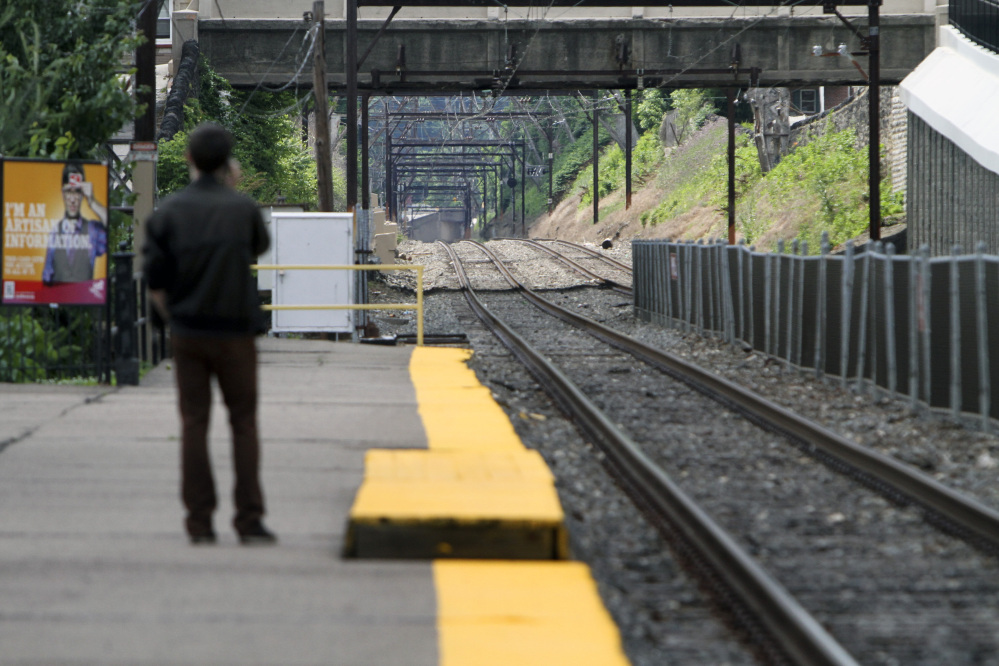PHILADELPHIA — Passengers expressed relief Sunday that Philadelphia-area commuter trains were back on track after a one-day strike threatened to disrupt work schedules for tens of thousands of commuters in the coming week.
Employees ended their walkout after President Barack Obama appointed an emergency board to mediate the contract dispute between the Southeastern Pennsylvania Transportation Authority and two of its unions.
An arrivals-and-departures board showed all regional rails running on time late Sunday morning at Suburban Station in downtown Philadelphia, where Steve Bessler and his dad got off to catch the subway for a Father’s Day outing to the Phillies game.
Bessler, who also takes the train to his job during the week, said thinking about the potential commuting chaos on Monday “really did stress me for a while.” His backup plan was to drive to the subway, whose lines weren’t affected by the strike.
“I was dreading that because everyone else would have been doing the same thing,” Bessler said.
The strike began after SEPTA failed to reach a new contract deal Friday with its engineers and electricians unions. It shut down 13 rail lines that carry about 60,000 passengers each weekday between Philadelphia and its suburbs in Pennsylvania, New Jersey and Delaware.
About 400 workers walked off the job Saturday but were required by law to return after the creation of the emergency board. Buses, subways and trolleys continued operating.
All striking employees reported for work Sunday except for one, whose absence might not be strike-related, said SEPTA spokeswoman Jerri Williams.
Brotherhood of Locomotive Engineers and Trainmen vice president Stephen Bruno said Sunday that the strike could have been avoided if SEPTA had agreed to their proposal or accepted binding arbitration.
SEPTA has said its offer is on par with what its other transit unions have accepted.
Engineers, whose contract expired in 2010, are seeking raises of at least 14.5 percent over five years, about 3 percentage points more than SEPTA has offered. A group of engineers outside Suburban Station said they were not allowed to comment.
Terry Gallagher, president of the International Brotherhood of Electrical Workers, said Obama’s intervention was “what we were waiting for.” Their contract expired in 2009.
Obama created the three-member board at the request of Gov. Tom Corbett. Now, the parties will participate in hearings set for the week of June 23, and the board will issue its recommendation to the president by July 14, Williams said.
Bessler said he hopes the stop-gap measure will provide enough time to find common ground and approve a new contract.
“Hopefully, the Band-Aid will be on long enough to allow this whole thing to heal,” Bessler said.
Others agree. Marc Iwanowicz, 28, said his normal 45-minute train ride from Philadelphia to his job at a suburban sporting goods store took twice that long Saturday. He said he took a combination of subway and bus instead of the rails because a cab ride would have been too expensive.
Workers aren’t allowed to strike while the emergency board is convened. If no resolution is reached, a second emergency board can be requested.
In March, Obama appointed a second presidential emergency board to resolve a dispute between New York’s Metropolitan Transportation Authority and a union representing workers with the Long Island Rail Road.
The last SEPTA regional rail strike, in 1983, lasted more than three months.
Send questions/comments to the editors.


